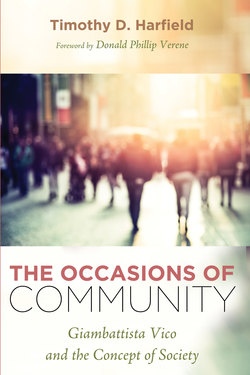Описание книги
Society did not always exist.
The emergence of disciplinary sociology in the nineteenth century was made possible because of a rethinking of society. With modernity, society suddenly became a thing that acted upon reality in a way that could be understood separately from the individual and the state. Although our modern conception of society is most commonly attributed to Montesquieu, many have suggested that it was actually an Italian thinker named Giambattista Vico who first made the discovery. How else could Vico found a 'sociology' one hundred and fifty years before the term was coined by Auguste Comte? In spite of Vico's reputation as an important proto-sociologist, however, there has never been a systematic study of the concept of society as it appears in his work.
In The Occasions of Community, Timothy D. Harfield explores several questions about the nature of society with important consequences for the history of the social sciences. What were the conditions that made it possible for our modern idea of society to emerge? What was it about the modern view of society that made the discipline of sociology possible? Is Vico's masterwork, The New Science, rightly praised as an important work of early sociology? Or does Vico's interest in the work of divine providence betray the fact that, for all Vico's brilliance as a thinker, The New Science was not yet modern?
The emergence of disciplinary sociology in the nineteenth century was made possible because of a rethinking of society. With modernity, society suddenly became a thing that acted upon reality in a way that could be understood separately from the individual and the state. Although our modern conception of society is most commonly attributed to Montesquieu, many have suggested that it was actually an Italian thinker named Giambattista Vico who first made the discovery. How else could Vico found a 'sociology' one hundred and fifty years before the term was coined by Auguste Comte? In spite of Vico's reputation as an important proto-sociologist, however, there has never been a systematic study of the concept of society as it appears in his work.
In The Occasions of Community, Timothy D. Harfield explores several questions about the nature of society with important consequences for the history of the social sciences. What were the conditions that made it possible for our modern idea of society to emerge? What was it about the modern view of society that made the discipline of sociology possible? Is Vico's masterwork, The New Science, rightly praised as an important work of early sociology? Or does Vico's interest in the work of divine providence betray the fact that, for all Vico's brilliance as a thinker, The New Science was not yet modern?
